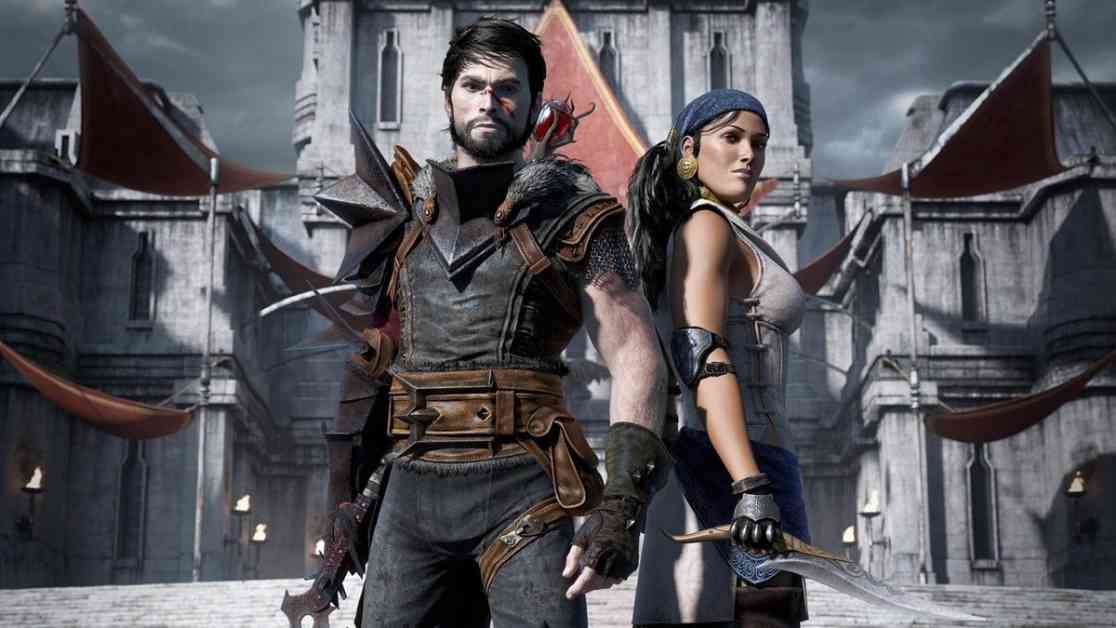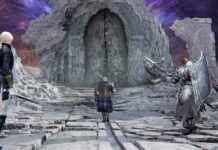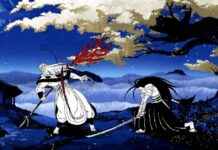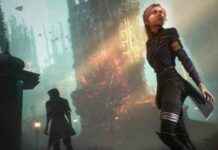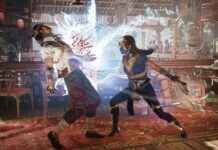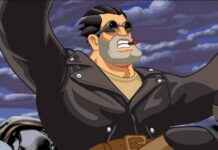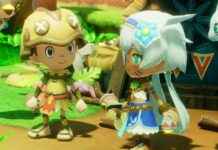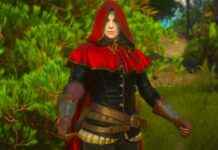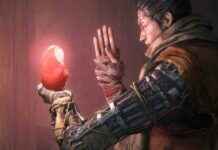Highly anticipated RPG Dragon Age: The Veilguard is coming to PC, PlayStation 5, and Xbox Series X/S this fall. BioWare has been focusing a lot of its marketing for the sequel on the game’s party of seven heroes, each of whom embodies a different faction within the universe and will be a romance option. But where will these new characters fall in the pantheon of the series?
Dragon Age’s companions are arguably the most well-regarded thing about the franchise, as is pretty standard for BioWare games. It’s got us thinking, who are the best characters in each Dragon Age game? Rather than creating an unwieldy list of 30+ characters spanning the entire series thus far, we decided to break them up between games. If you missed it, we already ranked Dragon Age: Inquisition’s party. But now, let’s get to Dragon Age II. Here’s our ranking of those nerds from Kirkwall, from worst to best.
In Dragon Age 2, protagonist Hawke has two siblings who act as temporary party members for the game’s first act. One will die in the opening with almost no ceremony, The other will get sidelined around ten hours in. Bethany, Hawke’s mage sister, easily gets the worst hand out of the two. She gets dragged away by the Circle in one route, becomes a Grey Warden in another, or she dies. Carver, Hawke’s warrior brother, has a similar setup, but he at least has some autonomy and drama in his branching paths. Bethany, meanwhile, is pretty much dragged through the story, with BioWare separating or killing every member of a family in a game ostensibly about familial ties. Bethany is comparatively sweet and understanding whereas her brother is decidedly neither of those things, but BioWare gave her nothing to work with.
Sebastian Vael, the lone DLC party member in Dragon Age 2, feels like the game could go on without him. Sure, he’s got his own storyline, struggling between whether or not he wants to be the ruler of Starkhaven as the brutal murder of his family has left him the only living heir. But beyond that, he mostly sways in the background of the main plot, being unwaveringly devout to the church and casting judgment upon others. His biggest contributions are his companion quest, which gives returning companion Leliana a chance to appear, and when he threatens to level the entirety of the city of Kirkwall if you don’t kill a terrorist. Which like, good for standing on your principles, king. But I barely know you. You’re the tagalong friend who awkwardly weighs in from the outskirts of the circle as everyone else is chatting. Go away!
Carver suffers from most of the same problems Bethany does, but his equivalent to her Circle route is what gives him the upper hand. If you choose to leave him behind on the Deep Roads expedition in Dragon Age 2’s first act, he will choose to join the church’s mage-oppressive military outfit, the Templars. He does this as an act of defiance against his older sibling and it plays into the tension developed throughout the first chunk of the game. After that, he is gone for most of the game much like Bethany, only showing up during climactic moments like a glorified cameo. It’s a shame.
The only returning companion from Dragon Age: Origins is inarguably the most impactful in Dragon Age 2. Anders is a far cry from the wisecracking apostate we met in the Awakening expansion—he’s now a tortured radical after being possessed by the spirit of Justice. He becomes a healer in the city of Kirkwall, growing more and more fanatical as the game goes on and he watches injustice unfold against the mages. Eventually, whether by his own fanaticism or the spirit’s influence, Anders blows up the Kirkwall Chantry, sparking a mage rebellion that changes the Dragon Age universe forever.
All of that makes him a compelling but divisive character. People love Anders for his tragic angst as much as others hate him for being a terrorist. In most versions of his story, I fall into the former camp. But Anders’ rivalry path, in which you can convince him to turn on and murder the mages he just sought to free, remains one of the most baffling and cowardly decisions BioWare has ever made with the Dragon Age franchise. It technically works within the game’s friendship and rivalry system, in which you can have a friendly or adversarial relationship with your party that can challenge their worldview, but it’s also such an irresponsible moment that is, sadly, par for the course with how Dragon Age tends to “both sides” issues of oppression. As the face of this conflict in Dragon Age, Anders inevitably has to bear the baggage of a series that has never wanted to take a side and failed to make a case for both arguments. And it undermines him and the story of Dragon Age 2 in the end.
Good ol’ Varric Tethras’ debut established him as a fan favorite and acted as a springboard for him to be one of the longest-running characters in BioWare’s fantasy series. The dwarven storyteller starts out as a humble businessman looking for a business partner only to get dragged into unprecedented times as the city of Kirkwall becomes a center point for worldwide change. Varric’s ties to the city run deep, but as he becomes estranged with his family, he finds a new one in Hawke and the others. In the end, he’s left alone as the others flee the city, and he stays behind to tell their story to anyone who will listen. It’s funny to think about how what he has to deal with here is like child’s play compared to the places he would go in Inquisition and will go in The Veilguard. But his greatness has small beginnings, and he’s only become greater since we met him as Hawke in Dragon Age 2.
Fenris, the lyrium-infused elven ex-slave from the land of the Tevinter Imperium, approaches Dragon Age 2’s mage problem as someone who has been the victim of the worst crimes magic can cause in this world. He’s been made into a living weapon at the behest of his mage master, and lost his family, memory, and almost all of his sense of self before escaping to Kirkwall. It’s only natural he’s dismissive and untrusting of mages. If you press him on this, he comes to see the issues with lumping every mage into the same pile as the slavers he knew in Tevinter. Fenris is one of the best examples of how Dragon Age 2’s friendships and rivalries can diverge in life-altering ways, and the delicious angst that comes with romancing him as rival mage Hawke is unmatched. He operates on an extreme in a game that sometimes has trouble dealing with the nuances of the conflict it centers on, but his relationship is most rewarding when you try to help him see the gray in between the black and white.
Kirkwall’s Captain of the Guard is probably the most grounded of Dragon Age 2’s companions. She’s not a radical mage, a swash-buckling pirate on the lookout for her next adventure, or a blood mage consorting with a demon. Aveline’s just a woman trying to get by and comfortably sleep at night. She starts as a member of the City Guard before her sense of honesty kicks in and she uncovers corruption in her ranks, leading to her ascending to the role of Captain. But even as she climbs the ladder of city defense, her story doesn’t escalate in scale, instead staying endearing and lowkey. Some of the most memorable moments in Dragon Age 2 are the quiet ones away from all the political strife, and Aveline’s painfully awkward attempt at courting her husband-to-be remains an incredible sequence that perfectly pulls off how even the strongest among us can be as vulnerable and clumsy as anyone else. She is a woman of multitudes, the beating heart of Hawke’s team, and a shining beacon for the idea of using what time you have in this life to do right by others.
Conversely, Isabela starts out as a scheming pirate who is so cool you want to be like her when you grow up. The rogue is cunning, promiscuous, and a bit brash, but she is also one of the series’ best-written companions. Isabela is always found at the Hanged Man bar, tossing back drinks and ready to read anyone around her to filth, but she is nurturing, wise, and loyal to a fault…if you help her get there.
Isabela can leave the party if she and Hawke aren’t close enough by the end of Act 2, but if you’ve either shown that you’re just as much a free spirit as she is or have berated her for the errors of her disloyal ways, she shows back up in a big damn hero moment ready to save the day. Then you have to fight for her life (or give her up, if you’re a bastard) and it’s all very romantic. While Isabela is technically an optional companion in Dragon Age 2, her actions play a big part in the setup for the political turmoil happening in Kirkwall. When she’s not there, her absence is felt, and when she is there, she makes sure everyone knows she’s the star of the show.
Across BioWare’s catalog, there probably isn’t a character with more emotional range than Merrill, the Dalish blood mage. When Hawke first meets her, she seems young and innocent, but it becomes clear she’s viewed in contempt by her elven clan. It becomes clear shortly after that she has been working with a demon and using the much-reviled blood magic. Even as she casts spells that would be taboo elsewhere in the world, she is still somehow one of the most light-hearted and humorous characters in the entire series. Merrill is the sweetest character in Hawke’s crew, even as she is berated by just about everyone else for her “crimes” of using blood magic. Though it would be easy to make her come off like an abused puppy, she is steadfast in her decisions, as she believes she can use this magic for the good of the Dalish people by restoring a piece of their history.
Merrill’s conviction leads her and those around her down devastating paths, and her story is one of the most frustratingly complex situations Hawke deals with in their story because every decision and outcome feels painful for everyone involved. Ultimately there is no happy ending for someone who consorts with demons, nor for people who distrusted her so much that they couldn’t let her face the consequences. But Merrill is subversive, tragic, and somehow, still a joy to know.
Dragon Age 2 was always the most divisive game in BioWare’s fantasy series, but The Veilguard seems to draw pretty heavily from it. It has an action-oriented approach, brings back DA2’s three-route dialogue system, and slims down the party. Overall, it looks like it’s learning some of the right lessons from the 2011 RPG. We’ll see if its characters live up to this merry band of misfits when The Veilguard launches this fall.

